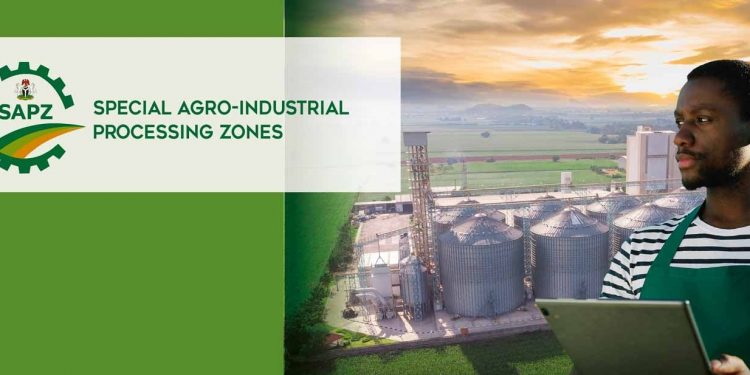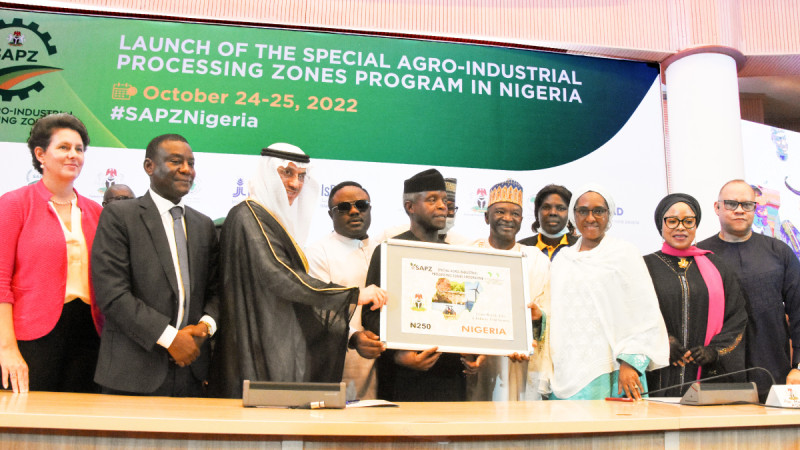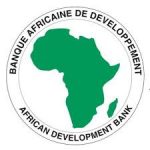The African Development Bank (AfDB) has commenced the second phase of its Special Agro-Industrial Processing Zones (SAPZ) Programme, extending the initiative to an additional 21 states across Nigeria. This marks a significant expansion following the successes of the pilot phase.
The update was disclosed by Imo State Governor, Hope Uzodinma, during the 146th National Economic Council (NEC) meeting in Abuja. Uzodinma stated that projects under the pilot phase, implemented in Kano, Kaduna, Kwara, Oyo, Ogun, Imo, Cross River States, and the Federal Capital Territory, are nearing completion.
The SAPZ Program is designed to transform rural areas into vibrant agro-industrial hubs, aiming to enhance food security and promote inclusive economic growth.
- Funding and Infrastructure Development:
- The pilot phase was funded with $540 million by AfDB.
- Focus areas include establishing Agro-Industrial Processing Hubs, constructing farm-to-market roads, and providing certified agricultural inputs.
- State Participation Requirements:
- States must complete feasibility studies and environmental impact assessments to join the programme.
- Private-Sector Involvement:
- AfDB’s Prof. Banji Oyelaran-Oyeyinka emphasized the role of the private sector in driving sustainable development.
- Skills Development:
- The programme integrates training initiatives to enhance the capacities of farmers and MSMEs.
National Economic Council (NEC) Resolutions
The NEC urged states to:
- Embrace the SAPZ Programme to tackle food security challenges.
- Collaborate with the National Agency for Science and Engineering Infrastructure (NASENI) for agricultural equipment repair and maintenance, including tractors.
- Support NASENI’s proposals for solar-powered rural electrification, land reclamation, and industrial development.
Public-Private Collaboration
Uzodinma stressed that partnerships between public and private sectors are critical to the success of SAPZ and NASENI initiatives. These efforts are expected to significantly boost Nigeria’s agricultural output and industrial capacity.
“The SAPZ Programme will be a game changer in tackling food security,” Uzodinma stated.
The SAPZ expansion represents a transformative step toward addressing Nigeria’s food security challenges, improving rural infrastructure, and fostering economic diversification.










